Literacy is one of the most important factors in our children’s educations today. The ability to read and write well are predictors of future academic success.
Children with parents who are more involved in the learning process have been shown to perform better in school than their peers with parents who are less involved.
By taking an active role in your kids’ developing reading skills, you can help ensure that they have the best chance possible of being successful throughout their lives. Below are some simple activities to help you do just that.
Read aloud to your kids
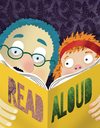 According to statistics from the National Education Association, children who are read to at home are more likely to become academically successful.
According to statistics from the National Education Association, children who are read to at home are more likely to become academically successful.
Reading aloud to children provides a strong foundation in early literacy. It shows kids that reading is both fun and engaging. Reading aloud as a family is probably the easiest thing a parent can do to help ensure their child’s future literacy and has the highest return on investment.
Kids of all ages benefit from reading aloud, so don’t leave children who are already reading on their own out of family story time!
Preschool
Reading activities for preschool kids are geared towards teaching letters, letter sounds, and creating fun ways to learn!
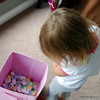 This is a great activity for younger kids to practice their letters or letter sounds, work on gross and fine motor skills, and have a good time doing it. All you need is a stick of some sort, a string, a paper clip, a container of some sort, and refrigerator magnet letters.
This is a great activity for younger kids to practice their letters or letter sounds, work on gross and fine motor skills, and have a good time doing it. All you need is a stick of some sort, a string, a paper clip, a container of some sort, and refrigerator magnet letters.
Learning activities that get kids up and moving are ideal for preschoolers and may help to hold their attention spans for longer periods of time.
 to activities.rememberstuff.me
to activities.rememberstuff.me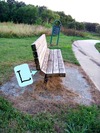 While out on a walk, help your preschooler search for letters in their surroundings. This could mean letters on signs or shapes in everyday objects that are shaped like letters. Shoot for finding every letter in the alphabet. My five year-old loves this game!
While out on a walk, help your preschooler search for letters in their surroundings. This could mean letters on signs or shapes in everyday objects that are shaped like letters. Shoot for finding every letter in the alphabet. My five year-old loves this game!

 Use sensory activities to help teach preschoolers their letters and letter sounds. Use playdough to shape letters, create a sensory bin, or write letters in the sand at the beach. Engaging a preschool child’s sense of touch is a great way to help him learn and retain new information.
Use sensory activities to help teach preschoolers their letters and letter sounds. Use playdough to shape letters, create a sensory bin, or write letters in the sand at the beach. Engaging a preschool child’s sense of touch is a great way to help him learn and retain new information.

Emerging readers
 Activities for emerging readers should be both challenging and help to reinforce the literary skills kids have already developed.
Activities for emerging readers should be both challenging and help to reinforce the literary skills kids have already developed.
Find book-specific activities to help reinforce lessons learned in the book. These activities can help drive home new vocabulary, new words, rhymes, and even the moral lessons taught in the book. Art projects, games, and an age-appropriate take on the book report are all perfect for this age group.

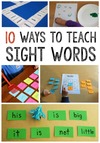 Provide creative ways to help kids learn sight words. Flash cards are boring! Liven up sight word practice with one of these sight word games, like sight word dominoes pictured below.
Provide creative ways to help kids learn sight words. Flash cards are boring! Liven up sight word practice with one of these sight word games, like sight word dominoes pictured below.

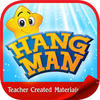 Embrace technology to engage emerging readers and help them to learn independently. There are so many amazing free apps and YouTube videos to help teach and reinforce sight words.
Embrace technology to engage emerging readers and help them to learn independently. There are so many amazing free apps and YouTube videos to help teach and reinforce sight words.
The songs, rhymes, and challenges presented through these forms of technology are ideal for making reading fun for kids.
 Buy Hangman on itunes
Buy Hangman on itunesParental involvement is the key to kids’ reading success, regardless of what activities you choose. By making reading practice a priority, parents teach their kids that it is important.
What reading activities have helped your child improve his literacy skills? Check out the kid's activity search feature on www.rememberstuff.me to find even more ways to help your child grow and learn!
 to articles.rememberstuff.me
to articles.rememberstuff.me